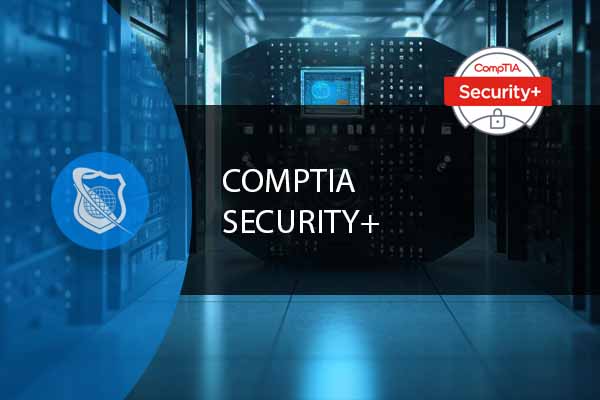Understanding password cracking tools and techniques used by cyber attackers is paramount for security professionals and enthusiasts alike. Among these tools, password cracking software stands out due to its ability to bypass security measures by cracking user passwords. This blog dives into the 10 most popular password cracking tools, offering insights into their functionalities, optimal use cases, and the importance of protecting against their exploitation.
Choose Your IT Career Path
ITU provides you with a select grouping of courses desgined specfically to guide you on your career path. To help you best succeed, these specialized career path training series offer you all the essentials needed to begin or excel in your choosen IT career.
John the Ripper
John the Ripper is a stalwart in the password cracking arena, initially designed for UNIX environments but has since evolved to support numerous platforms. This tool excels in identifying weak passwords by leveraging dictionary, brute-force, and rainbow table attacks. What makes John particularly versatile is its auto-mode, which can switch algorithms based on the encryption it’s dealing with, making it highly efficient. It’s best used for auditing password strength in varied environments, bolstered by its community-developed plugins that extend its cracking capabilities even further.
Hashcat
Hashcat claims the title of the world’s fastest password recovery tool, harnessing the power of GPUs and CPUs to accelerate the cracking process. It supports a wide array of hash types and offers multiple attack modes, including straightforward, combination, brute-force, and hybrid attacks. Hashcat shines in scenarios requiring the cracking of complex passwords quickly, making it a go-to for both penetration testers and malicious hackers interested in exploiting cryptographic hash weaknesses.
Hydra
Hydra, also known as THC-Hydra, is a potent force in cracking network protocols. Its ability to perform rapid-fire attacks across numerous protocols like FTP, HTTP(S), SSH, and Telnet makes it a nightmare for weak password implementations. Hydra’s strength lies in its parallel processing, allowing it to attack many hosts simultaneously and efficiently. It’s particularly useful in testing the security of remote authentication services, highlighting vulnerabilities in password policies.
Aircrack-ng
Aircrack-ng is a comprehensive suite focused on assessing WiFi network security. It is adept at monitoring, testing, and cracking WiFi networks, pinpointing vulnerabilities in WEP and WPA/WPA2-PSK security protocols. Aircrack-ng is best employed in wireless environment audits, where it can capture data packets and analyze them to recover network passwords. Its ability to break weak WiFi passwords rapidly makes it indispensable for network security assessments.
Cain & Abel
Cain & Abel is a multifaceted tool for Microsoft Operating Systems, specializing in the recovery of various password types through network sniffing, dictionary, brute-force, and cryptanalysis attacks. It also features capabilities for recording VoIP conversations and decoding scrambled passwords. Its best use is within network environments for recovering lost passwords from a wide range of applications and for uncovering system vulnerabilities that could be exploited via weak passwords or flawed encryption.

Information Security Manager Career Path
Propel your career forward and be part of an essential member of any management team as an Information Security Manager. This advanced training series is designed specifically for those want to move up into a management position in the IT field.
Ophcrack
Ophcrack is celebrated for its simplicity and effectiveness in cracking Windows passwords through rainbow tables. It excels in recovering alphanumeric passwords by comparing encryption hashes with pre-computed tables for lightning-fast cracking. Ophcrack is particularly handy for IT professionals and ethical hackers needing to regain access to Windows accounts when passwords have been forgotten or lost.
RainbowCrack
RainbowCrack innovates in the password cracking field by using rainbow tables to perform time-memory tradeoff attacks against hash passwords. This method significantly speeds up the cracking process compared to traditional brute-force attacks. RainbowCrack is best used when dealing with encrypted passwords stored in databases and requires pre-computed rainbow tables tailored to the specific hash algorithm being targeted.
SQLMap
SQLMap automates the process of detecting and exploiting SQL injection vulnerabilities, providing attackers and testers alike a powerful means to retrieve database contents, including user passwords. While not a direct password cracker, SQLMap excels in environments where SQL injections are a potential threat, making it crucial for web application security assessments.
Wfuzz
Wfuzz is a flexible tool designed for brute-forcing web applications, capable of finding unlinked resources (directories, servlets, scripts), brute-forcing GET and POST parameters, and cracking Form parameters (User/Password). Its versatility makes it ideal for web security testing, offering penetration testers a powerful way to uncover hidden resources and vulnerabilities in web applications.
Metasploit
Metasploit, primarily a penetration testing framework, includes modules that support password cracking as part of its comprehensive suite of tools. It facilitates the development, testing, and execution of exploit code against remote target machines. While not exclusively a password cracking tool, Metasploit is instrumental in exploiting vulnerabilities, including those that can be leveraged to crack passwords as part of a broader security testing strategy.
Secure Your Networks and Prevent Password Breaches
Our robust CompTIA Sec+ course is the perfect resouce to ensure your company’s most valuable assets are safe. Up your security skills with this comprehensive course at an exceptional price.
Conclusion
The tools highlighted above are at the forefront of password cracking and cybersecurity testing, serving both ethical hackers and malicious attackers. Understanding these tools, their capabilities, and their optimal use cases is vital for anyone looking to secure their digital environments. While these tools can
Frequently Asked Questions Related to Password Cracking Tools
What is the legal status of using password cracking tools?
The legality of using password cracking tools varies by jurisdiction but generally hinges on consent and intent. Using these tools on systems you own or have explicit permission to test is typically legal and falls under ethical hacking or security testing. However, using them without authorization to gain access to or disrupt systems you do not own is illegal and considered a cybercrime. It’s crucial to understand and comply with local laws and regulations regarding cybersecurity practices.
How do password cracking tools work?
Password cracking tools use various methods to guess or recover passwords from data storage or transmission systems. Common techniques include brute-force attacks, which try all possible combinations; dictionary attacks, which use a list of common passwords; and rainbow table attacks, which use precomputed tables of hash values to reverse cryptographic hash functions. Advanced tools can also exploit system vulnerabilities or use social engineering to obtain passwords.
Can password cracking tools break any password?
While many password cracking tools are powerful and sophisticated, the ability to crack a password often depends on the password’s complexity and the security measures in place. Simple or commonly used passwords can be cracked relatively quickly, but strong, complex passwords, especially those protected by advanced hashing algorithms and security practices, can be much harder or even practically impossible to crack within a reasonable timeframe.
What are the ethical considerations of using password cracking tools?
Ethically, the use of password cracking tools should be restricted to lawful purposes, such as penetration testing, security auditing, or recovering forgotten passwords for systems you own or manage. Using these tools to invade privacy, steal information, or gain unauthorized access is unethical and against the ethos of the cybersecurity community. Ethical hackers and security professionals should always seek permission before conducting security assessments or tests on systems owned by others.
How can I protect my accounts from password cracking attempts?
Protecting your accounts from password cracking attempts involves several best practices:
Use long, complex passwords that include a mix of letters, numbers, and symbols.
Avoid using common passwords or easily guessable information.
Enable multi-factor authentication (MFA) wherever possible, adding an additional layer of security beyond just a password.
Regularly update your passwords and use unique passwords for different accounts.
Be aware of phishing attempts and social engineering tactics used to acquire passwords.
Consider using a reputable password manager to generate and store strong, unique passwords for your accounts.


























